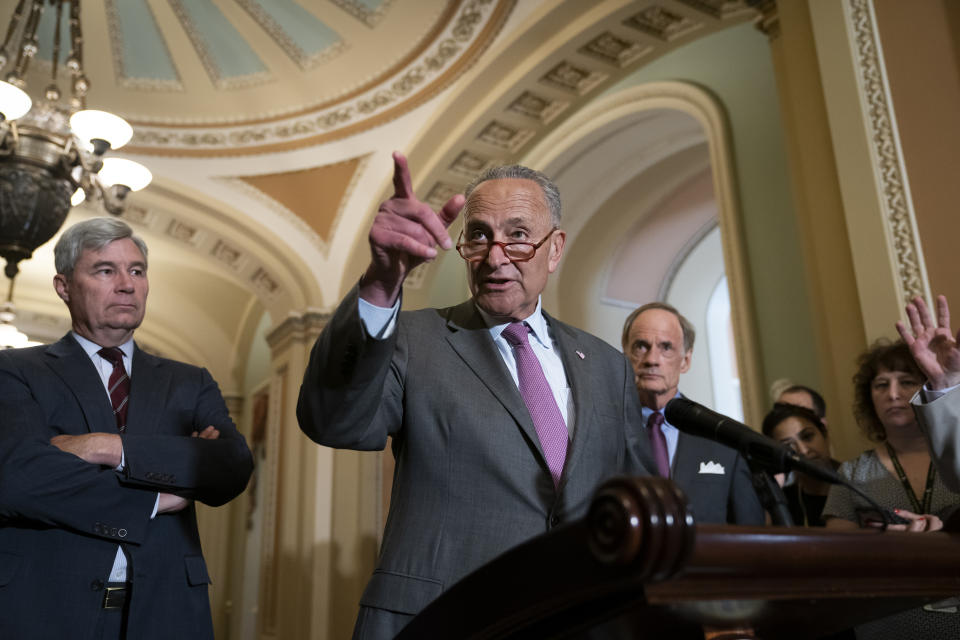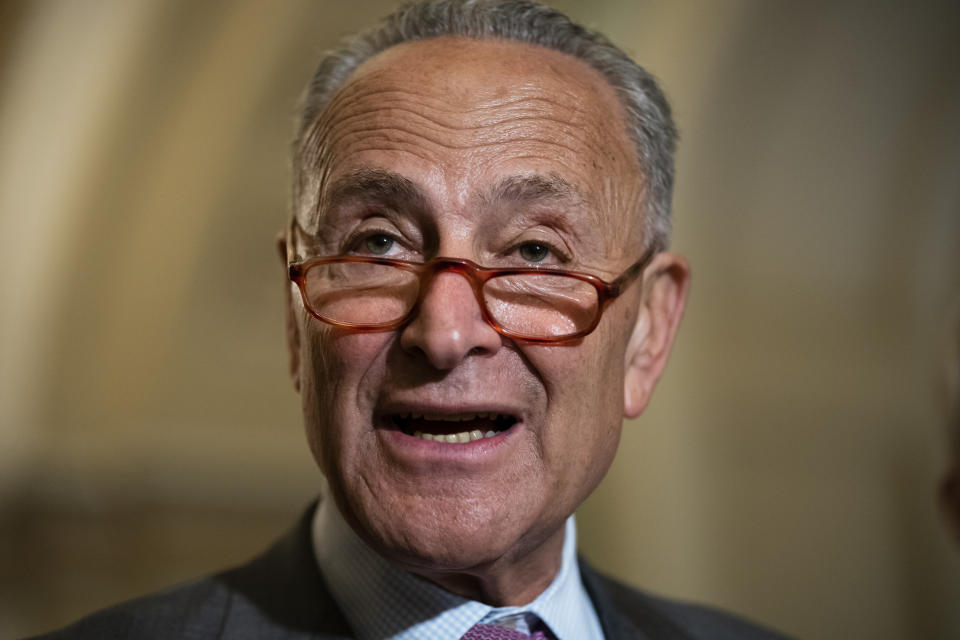Schumer on ending filibuster: 'Nothing's off the table'
WASHINGTON (AP) — Senate Minority Leader Chuck Schumer opened the door on Tuesday to ending the procedural rule that requires 60 votes to steer most bills through the chamber if Democrats take the Senate and White House in 2020 — a boon to presidential candidates and activists in his party who have called for that change.
Schumer told reporters that "nothing's off the table" if Democrats defeat President Donald Trump and take back the Senate in 2020. However, the New York Democrat cautioned that before removing the filibuster for legislation, "our first step is to get back the majority" of the Senate, where Democrats currently control 47 votes to the GOP's 53 votes.
It wasn't the first time Schumer has signaled that he would be open to ending the filibuster, which allows 41 senators to block approval of legislation if they vote as a bloc. But his renewed openness to the move is a victory for liberal activists who have elevated the filibuster in the party's 2020 presidential primary. Progressive groups have urged Democratic White House hopefuls to commit to ending a practice that liberals say Senate Republicans would use to block the priorities of any future Democratic president.
Massachusetts Sen. Elizabeth Warren has said she would eliminate the filibuster if elected president, urging fellow Democrats to "be bold and clear." Other top Democrats, including California Sen. Kamala Harris and Vermont Sen. Bernie Sanders, have expressed openness to curtailing it.
However, even if Democrats were to take back the Senate and the White House next year, securing the votes necessary to end the filibuster won't be a simple task. One of the Senate's most centrist Democrats, West Virginia Sen. Joe Manchin, was surprised that Schumer would decline to rule out eliminating the filibuster.
The Senate's ability to function as intended by "our Founding Fathers," Manchin said in an interview, relies on giving the minority "the ability to stop crazy stuff" from passing.
Senate Majority Leader Mitch McConnell, R-Ky., has previously spurned entreaties to end the filibuster for legislation, including from Trump himself. However, he did eliminate the 60-vote threshold required to confirm Supreme Court nominees in 2017, following a Democratic move in 2013 to end the requirement for other executive branch and judicial nominees.


